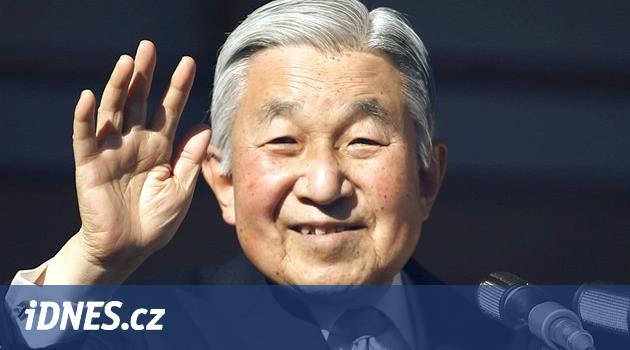The 82-year-old Akihito said in a 10-minute recorded speech that his health was failing and it was becoming increasingly difficult for him to carry out his duties as emperor. In his words, he hoped that the emperor’s duties as a symbol of the state could be carried out without stopping, the server wrote. BBC.
He recalled the possibility that if the emperor experienced old age or health problems, his successor would take over most of his duties. However, at the end of his speech, he added that despite this, he would officially remain emperor until his death.
The emperor has had heart surgery and has been treated for prostate cancer in the past. State broadcaster NHK announced in July that Akihito wanted to step down within a few years. There is speculation that he wants to transfer at least some of his duties to Crown Prince Naruhito.
A constitution that does not allow abdication
Akihito he was the last king in the world to hold the title of emperor. He has ruled Japan since 1989, but has no political power. Until the end of the Second World War, the Japanese emperor was considered a god, today his position is more consistent with the role of “inventory” of the state. Their travels, visits and much of their private life abroad is regulated by officials (More info).
Japan has never seen an emperor abdicate in its modern history. The last time an emperor abdicated and handed over the throne to his successor was around 200 years ago. Even current Japanese law does not allow the king to abdicate. According to the constitution, they are not allowed to interfere in political events.
After Akihito, Prime Minister Shinzo Abe also gave a statement on Monday. Responding to the emperor’s speech, the prime minister said, according to the AP, he took what Akihito said seriously. “I think we need to think carefully about what we can do to accommodate his concerns given his age and the burden of his current official duties,” he said.

“Certified bacon geek. Evil social media fanatic. Music practitioner. Communicator.”







